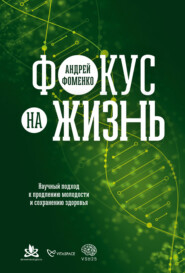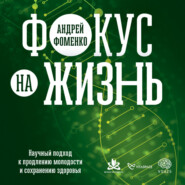По всем вопросам обращайтесь на: info@litportal.ru
(©) 2003-2024.
✖
The Power Of Youth. How To Tune Our Mind And Body For A Long And Healthy Life
Настройки чтения
Размер шрифта
Высота строк
Поля
5) wine/black grape juice.
The MIND diet also recommends limiting red meat, butter and margarine, cheese, sweets and candy, fried food, and fast food.
NEUROTRANSMITTERS ARE THE LANGUAGE THE BRAIN SPEAKS
Neurotransmitters are chemical substances that transmit signals between two nerve cells or between neurons and other cells in the body. They affect many psychological and physiological functions of the body, as well as mood, memory, learning ability, and concentration, regulate sleep, appetite, and vital signs: heart rate, breathing, digestion features, etc.
Neurotransmitters are often confused with hormones. This is not surprising, because their regulatory functions are very similar, and, in addition, many neurotransmitters have hormone-double: there is dopamine-hormone and dopamine-neurotransmitter, and noradrenaline-neurotransmitter and noradrenaline hormone, etc. Even though these substances have the same chemical formulas, they differently affect the body.
The main difference is that hormones are produced only in the endocrine glands, while neurotransmitters are produced exclusively by neurons. Therefore, the effect of neurotransmitters is limited to the nervous system, and hormones act on the periphery and cannot penetrate the brain they are hindered by the blood-brain barrier.
The difference between hormones and neurotransmitters with the same chemical formula can be seen in noradrenaline. The hormone noradrenaline is produced in the adrenal glands during stress. Its effect is similar to adrenaline, but it has a more pronounced vasoconstrictive effect and has less effect on the heart rate, a less significant effect on the smooth muscles of the intestines, etc. That is, the sphere of influence of the hormone noradrenaline is internal organs. It is controlling the body's response to stress.
At the same time, the neurotransmitter noradrenaline "reigns" in the brain: in stressful situations, it is responsible for the sense of excitement and risk enjoyment, increasing aggression and reducing anxiety. In its more "peaceful" hypostasis, it helps to memorize information better in training.
THE PRINCIPLE OF OPERATION OF NEUROTRANSMITTERS
At what point does the nerve impulse "lose" its electrical nature and "switch" to a chemical one? This occurs when the signal coming from the nerve cell body along the axon reaches an area called the synapse. The synapse is a contact point between the end of one projection and the beginning of another one or the cell membrane to which a signal is to be delivered. Between them, there is a space 10–50 nanometers wide, which is called the synaptic cleft.
The terminal along which the signal came is called presynaptic. Neurotransmitters are synthesized there: they are contained in small vesicles. Their release into the synaptic cleft occurs in response to reaching a threshold action potential, i.e., the nerve impulse shall be characterized by a certain intensity.
Once released, the neurotransmitter enters the synaptic cleft and contacts the receptors on the surface of the "receiving side" projection, the postsynaptic membrane. Receptor activation gives rise to a new nerve impulse, which continues its way (if there is contact between neurons) or causes the desired effect in the cell to which the signal was sent. However, a chemical signal can also inhibit the nerve impulse at the postsynaptic terminal. It depends on what the neurotransmitters do – excite or inhibit.
After the signal transmission from one terminal to the other, the neurotransmitter molecules left in the cleft are either quickly destroyed or "pulled" into the presynaptic terminal through special protein pumps. This is called the principle of neurotransmitter reuptake, and it is used in the creation of some drugs. The effect of many antidepressants is based on blocking the reuptake of the neurotransmitter serotonin, which is responsible for good mood. As a result, serotonin stays in the synaptic cleft longer, having the desired effect.
WHAT ARE NEUROTRANSMITTERS, AND HOW DO THEY AFFECT PEOPLE?
According to the effect that neurotransmitters have on the "receiving" nerve terminal, they are divided into excitatory: they increase the action potential and generate a new impulse, and inhibitory: block the action potential achievement in the postsynaptic nerve ending. Some neurotransmitters, such as dopamine and acetylcholine, can have both stimulatory and suppressive effects, depending on the type of receptors on the postsynaptic membrane.
Next, we will talk about several neurotransmitters that have a powerful effect on various aspects of human life, both physiological and psychological.
DOPAMIN is called the neurotransmitter of winners, and scientists describe it as one of the key factors of internal reinforcement. Its formation helps to remember positive experiences: for example, when a person tastes good food, receives praise, has sex, and achieves a goal. The dopamine release is followed by euphoria: the brain remembers it and motivates the person to have the positive experience again. Dopamine plays an important role in learning processes, and it is also involved in the regulation of muscle function. When dopamine production is impaired, so-called dopamine diseases, like Parkinson's disease and schizophrenia, develop.
Вы ознакомились с фрагментом книги.
Приобретайте полный текст книги у нашего партнера:
Приобретайте полный текст книги у нашего партнера:











